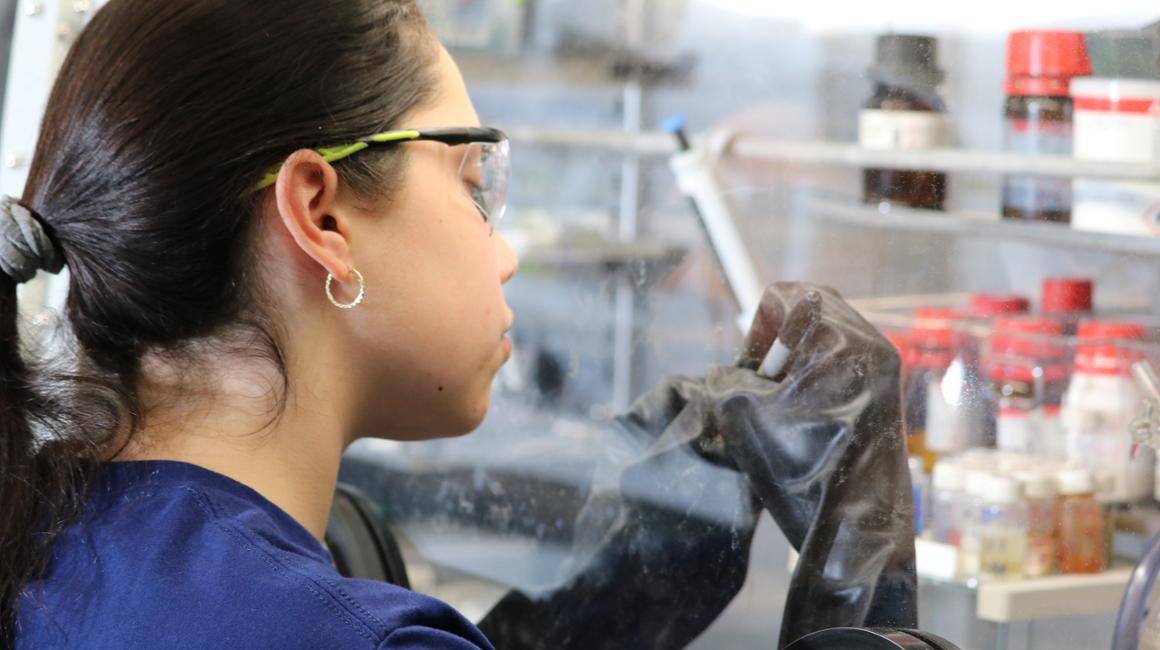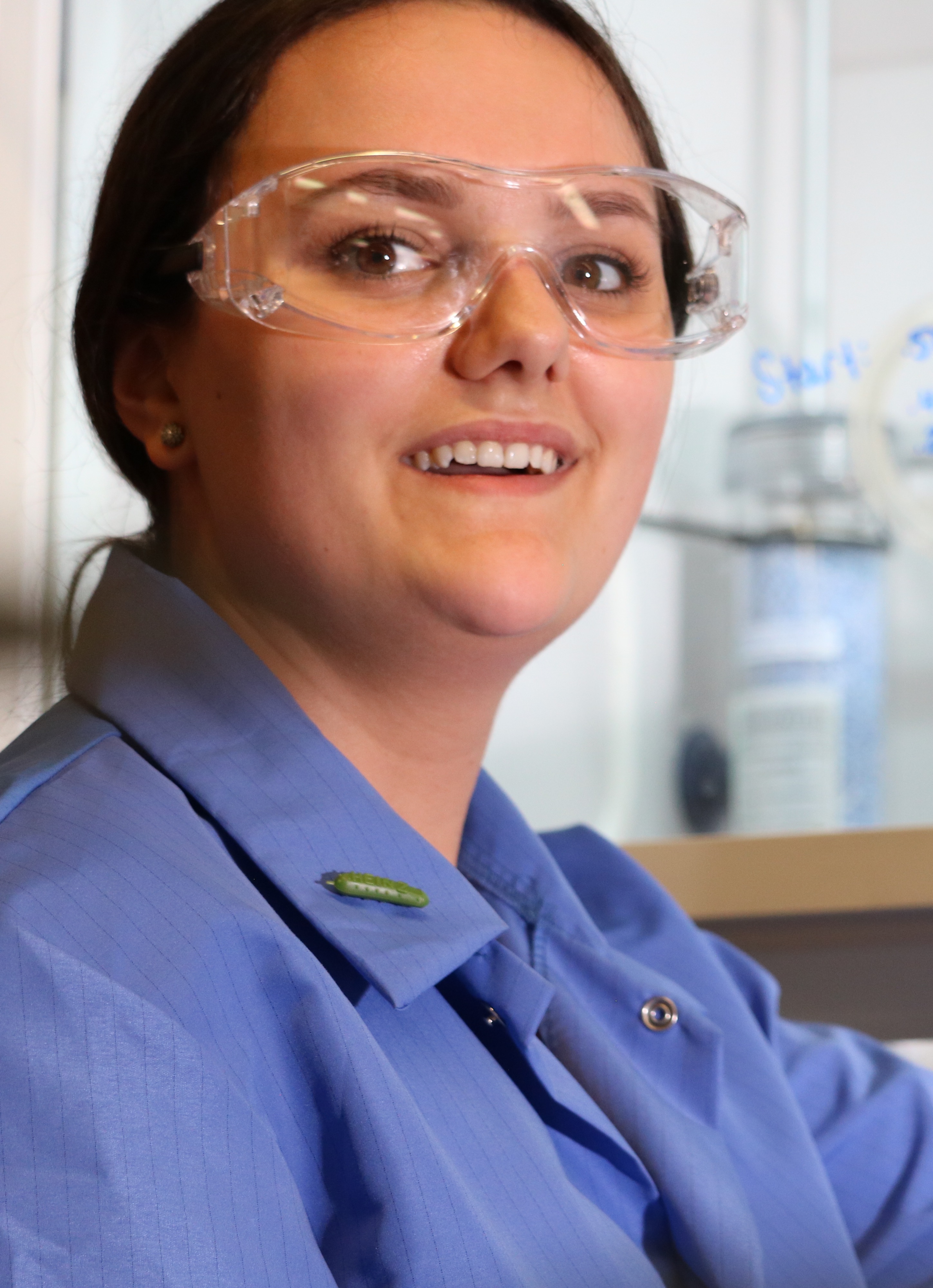Our dual degree programs provide an accelerated pathway to earn two degrees—so students can save time, reduce tuition costs, and enter the workforce with advanced qualifications.
Biological Sciences
4+1 B.S. in Biological Sciences / M.S. in Biotechnology
The 4+1 Biological Sciences-Biotechnology Dual Degree Program is an accelerated pathway
that allows students to earn both a Bachelor of Science (BS) in Biological Sciences
and a Master of Science (MS) in Biotechnology in just five years. By enrolling in
their junior year, students save time and money while gaining hands-on experience
through an integrated curriculum that prepares them for careers in research, pharmaceuticals,
medical technology, bioengineering, and more.
B.S. in Biological Sciences / M.S. in Education
Students begin as a Biology major, taking all Biology requirements. In the third year,
students apply to the School of Education for admission into the M.S. program. During
the fourth year, students begin taking education courses and, during the fifth year,
take exclusively education courses.
B.S. in Biological Sciences / M.S. in Environmental Science and Management
Students apply directly to the Environmental Science and Management program and, after
acceptance, can choose to study for a B.S. in Biological Sciences, Chemistry or Environmental
Science.
All the requirements for the Biology degree are the same as for a Biology major but,
in the fourth year, courses in environmental science are taken. These courses count
toward biology electives and ESM requirements.
Chemistry
4+1 B.S. in Chemistry / M.S. in ChemistryThis opportunity allows students earning their B.S. in Chemistry to earn their M.S. in Chemistry with one additional year. According to the ACS Salary Survey, chemists with master's degrees may earn an average of $19,000 more than those with a bachelor's degree. This opportunity prepares students to graduate with the skills employers require to meet the growing need for master's level professionals.
Although a Master of Science degree usually takes two years after earning a bachelor's degree, the 4+1 program will allow students to maximize their Duquesne undergraduate degree by earning a M.S. with just one additional academic year of courses.
Apply as a chemistry major. Once you have submitted your deposit to become a Duquesne student, you can tell your advisor that you want to pursue the 4+1 track. You will officially apply to the program between the fall of your sophomore year and the fall of your junior year.
B.S. in Chemistry / M.S. in Education
Students begin as a Chemistry major, taking all Chemistry requirements. In the third
year, students apply to the School of Education for admission into the M.S. program.
During the fourth year, students begin taking education courses and, during the fifth
year, take exclusively education courses.
B.S. in Chemistry / M.S. in Environmental Science and Management
Students apply directly to the Environmental Science and Management program and, after
acceptance, can choose to study for a B.S. in Biological Sciences, Chemistry or Environmental
Science.
All the requirements for the Chemistry degree are the same as for a Chemistry major
but, in the fourth year, courses in environmental science are taken. These courses
count toward Chemistry electives and requirements for Environmental Science and Management.
Computer Science
B.S. / M.S. in Computer Science
Accelerate your academic and professional journey with our combined B.S./M.S. in Computer
Science program. Designed for high-achieving students, this five-year pathway provides
a strong theoretical foundation along with practical experience in areas such as cybersecurity,
artificial intelligence, computer architecture and operating systems. Students can
complete both degrees in just five years—earning a bachelor's in four years and a
master's in one additional year—while benefiting from significant financial savings
by taking select graduate courses at the undergraduate tuition rate. The program offers
streamlined admission with provisional acceptance into the graduate program before
completing the undergraduate degree, removing the stress of a separate application.
Qualified students can begin graduate coursework in their senior year with automatic enrollment approval, provided prerequisites are met. This dual degree is ideal for students seeking to deepen their expertise and gain a competitive edge in today’s technology-driven job market.
Environmental Science and Management
B.S. in Environmental Science / M.S. in Environmental Science and Management
The dual-degree B.S./M.S. program follows the same curriculum as the other undergraduate
majors in the School of Science and Engineering. During your junior year, you will
begin integrating Environmental Science and Management (ESM) graduate coursework into
your studies.
You will earn your B.S. after your fourth year if all university and Bayer School
core curriculum requirements have been met. To continue with the graduate program,
you'll need a GPA of 3.0 or greater. You will earn the Master of Science after completing
the ESM requirements during your fifth year.
Forensic Science and Law
B.S. in Biochemistry / M.S. in Forensic Science and Law
Earn both your bachelor's and master's degrees in just five years through our accredited
B.S. in Biochemistry/M.S. in Forensic Science and Law program blending the rigor of
biochemistry with advanced forensic science and legal training. The M.S. in Forensic
Science and Law prepares you for careers at the intersection of science and justice.
Starting in your fourth year, you'll take graduate-level coursework and transition
into the full master’s program in your fifth year.
Gain hands-on experience in areas such as crime scene investigation, forensic toxicology, DNA analysis, and forensic pathology—while also developing a strong foundation in legal procedures, including courtroom practices and expert witness testimony.
Physics
B.S. in Physics / M.S. in Education
Students begin as a Physics major, taking all Physics requirements. In the third year,
students apply to the School of Education for admission into the M.S. program. During
the fourth year, students begin taking education courses and, during the fifth year,
take exclusively education courses.
3+2 B.A. in Physics / B.S. in Engineering
This program allows students to receive two bachelor degrees in only five years. Students
first attend Duquesne University for three years and then spend two years at a partner
school, either Case Western Reserve University or the University of Pittsburgh. Students
begin as physics majors, taking all physics requirements. At the end of the third
year, students apply for admission to engineering school.
Admission to the partner school is guaranteed subject to minimum requirements of GPA
and relevant course completion. Relevant credits transfer automatically to the engineering
partner as per articulation agreements. All engineering majors offered at the partner
school are eligible.
The addition of a physics degree to an engineering career is certain to appeal to
potential employers. With this program you can take advantage of the common requirements
of both degrees to accomplish both in the shortest possible amount of time, without
the need for taking courses in the summer.
Apply to the Bachelor of Arts in Physics. Once you have submitted your deposit to
become a Duquesne student, inform your success coach of your intention to pursue the
3+2 program. Your class schedule will be aligned to the 3+2 requirements from year
one.




